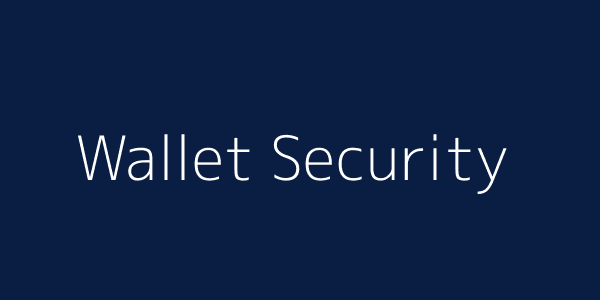Pi Network Wallet Address: Guide and Insights

Introduction
As blockchain technology and cryptocurrencies continue to revolutionize the global financial landscape, the Pi Network emerges as a unique project aiming to make crypto accessible to everyone. At the core of interacting with the Pi ecosystem lies the 'Pi Network wallet address'—a crucial element for storing, transacting, and securing your digital Pi coins. In this all-encompassing guide, you'll learn what a Pi Network wallet address is, its importance, how to create one, and best practices to manage it securely and efficiently.
What Is a Pi Network Wallet Address?
A Pi Network wallet address is a string of alphanumeric characters that serves as your unique identifier on the Pi blockchain. Much like your email address enables you to send and receive emails, your wallet address allows you to receive and send Pi coins. Each address is generated by cryptographic algorithms ensuring security and privacy.
Why Does Your Pi Network Wallet Address Matter?
Owning your Pi Network wallet address is essential for:
- Transferring Pi coins between users
- Storing your earned Pi securely off the mining application
- Participating in the upcoming Pi Network Mainnet
- Onboarding into various decentralized applications (DApps)
This address becomes your gateway to full participation in the Pi Network ecosystem.
Step-By-Step Guide to Creating Your Pi Network Wallet Address (Markdown Format)
1. Download the Pi Network App
You need the official Pi Network app to gain access to Pi mining and wallet features. Register an account using your phone number or Facebook account, and authenticate your identity as per app guidelines.
2. Navigate to Pi Wallet Setup
Within the app, find and select the option for 'Pi Wallet.' The setup guide will walk you through the process of creating your wallet.
3. Generate or Backup Your Wallet Address
- You will be prompted to create a new wallet address.
- Importantly, the app will generate a unique 'private key' for you. Back this up and store it securely—the private key is your only way to access the wallet if you lose your device or app credentials.
- The app will display your Pi Network wallet address (public key). This is the address you share for receiving Pi.
4. Testing Your Wallet
Once your wallet address is created, you can test it by sending a small amount of Pi (as soon as transactions are enabled on Mainnet), or by having another user send you test Pi. Double-check that your public address matches when receiving funds.
5. Managing Wallet Security
For added security, consider using dedicated web3 wallets, such as Bitget Wallet, which provide robust backup and management options. Bitget Wallet offers industry-standard security and user-friendly restoration methods to ensure your Pi coins remain safe.
Additional Tips for Managing Your Pi Network Wallet Address
1. Maintain Multiple Copies of Your Private Key
Never store your private key in a single location. Write it down and keep it in a secure, offline location such as a safe. Never share your private key with anyone.
2. Use a Reputable Web3 Wallet
While the Pi Network app is sufficient for many users, seasoned crypto users may prefer to use solutions like Bitget Wallet. This enables seamless integration with a variety of blockchain networks, greater control over assets, and cross-chain transfer capabilities. Bitget Wallet also provides an additional layer of security and robust backup solutions.
3. Stay Updated With Mainnet Developments
As the Pi Network transitions from testnet to mainnet, new functionalities will emerge. Join official Pi Network communities and stay informed about network updates and any changes impacting wallet security, transaction capabilities, or address formats.
4. Test with Small Transactions
Always test your Pi wallet address with small amounts before sending or receiving large sums. This helps avoid mistakes or the misplacement of your coins. Once you confirm the transaction goes through smoothly, you can proceed with confidence running larger transfers.
5. Beware of Scams and Phishing
Never disclose your private key, seed phrase, or sensitive wallet details to anyone, especially through emails or unofficial chats. Scammers may mimic Pi Network communications—always access your wallet through the official app or trusted wallets such as Bitget Wallet.
Frequently Asked Questions
Q1: Can I Change My Pi Network Wallet Address?
In most blockchain systems, wallet addresses are typically permanent, but you can always create a new wallet if required. Doing so requires generating and backing up a new private key. If you suspect your private key has been compromised, make a new wallet address and transfer your assets immediately.
Q2: How Do I Receive Pi Coins with My Address?
Share your Pi Network wallet address (public address only) with the sender. They can then use this address to transfer Pi coins to your wallet. Consider verifying the address for accuracy before confirming any transfers.
Q3: Are There Fees Associated with Using My Pi Network Wallet Address?
Currently, Pi Network is in development, and the specifics of transaction fees are being finalized. Always stay up-to-date with the latest announcements in the app or through official channels to understand any changes in fee structures.
Q4: How Do I Recover Access If I Lose My Private Key?
Unfortunately, losing your private key means losing access to your Pi coins permanently—there are no recovery mechanisms. This irreversible process is true for most decentralized wallets, highlighting the critical importance of backup.
The Growing Importance of Wallet Addresses in Decentralized Finance

As the user base of Pi Network and other blockchain solutions grows, the role of a wallet address becomes even more fundamental. Your wallet address is not just a digital identity but a key to the decentralized finance revolution. The advent of projects like Pi Network means that millions more people will require guidance on safely setting up, using, and securing their wallet addresses.
With increasing attention on usability, security, and interoperability, integrating solutions like Bitget Wallet can provide users with the resources and confidence they need to participate fully in the cryptocurrency economy while keeping their assets safe from common threats.
Summary
The Pi Network wallet address is your portal to the new decentralized economy—the safer and smarter you are in creating and managing it, the greater your ability to participate, interact, and prosper within this exciting blockchain frontier. Whether you're a Pi Network newcomer or seasoned cryptocurrency enthusiast, every detail about wallet management matters. Choose robust security steps, adopt trusted tools like Bitget Wallet for advanced safety, and keep learning as the crypto landscape continues to evolve.























